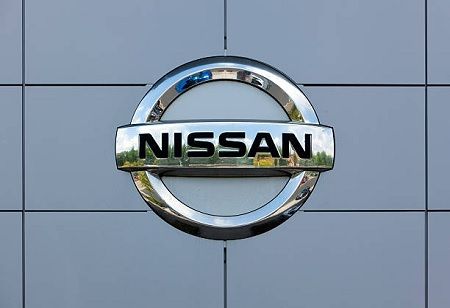
Nissan Unveils 'The Arc' Global Strategy, Targets 100k Unit Export from India

 Nissan Motor has introduced 'The Arc', its latest business strategy aimed at enhancing value and bolstering competitiveness. This initiative will emphasize a comprehensive product expansion, heightened electrification efforts, innovative engineering and manufacturing methods, incorporation of emerging technologies, and strategic partnerships to elevate global sales volume and enhance profitability. Positioned as a transitional framework between the preceding Nissan NEXT business transformation plan spanning from FY2020 to FY2023 and the future-oriented Nissan Ambition 2030, The Arc represents a pivotal step in the company's long-term vision.
Nissan Motor has introduced 'The Arc', its latest business strategy aimed at enhancing value and bolstering competitiveness. This initiative will emphasize a comprehensive product expansion, heightened electrification efforts, innovative engineering and manufacturing methods, incorporation of emerging technologies, and strategic partnerships to elevate global sales volume and enhance profitability. Positioned as a transitional framework between the preceding Nissan NEXT business transformation plan spanning from FY2020 to FY2023 and the future-oriented Nissan Ambition 2030, The Arc represents a pivotal step in the company's long-term vision.
Makoto Uchida, President and CEO, Nissan said, “The Arc plan shows our path to the future. It illustrates our continuous progression and ability to navigate changing market conditions. This plan will enable us to go further and faster in driving value and competitiveness. Faced with extreme market volatility, Nissan is taking decisive actions guided by the new plan to ensure sustainable growth and profitability”.
As part of the dual-phase strategy, Nissan will initially implement measures to secure volume expansion through a customized regional approach and pave the way for a swift transition to electric vehicles (EVs). This transition will be underpinned by a well-balanced portfolio comprising electrified and internal combustion engine (ICE) products, alongside volume growth in key markets and a commitment to financial prudence.
Through these initiatives, Nissan aims to lift annual sales by 1 million units and increase its operating profit margin to more than 6%, both by the end-FY2026. This it says will pave the way for the second part of the plan, which is aimed to enable the EV transition and realize long-term profitable growth, supported by smart partnerships, enhanced EV competitiveness, differentiated innovations and new revenue streams. By fiscal year 2030, Nissan sees a revenue potential of 2.5 trillion yen (Rs 152,500 crore) from new business opportunities.
Over the upcoming three years, the company intends to introduce 30 new models, comprising 16 electric vehicles and 14 internal combustion engine models, in response to varying levels of electrification across different markets and to cater to diverse customer preferences. Additionally, between fiscal years 2024 and 2030, Nissan plans to roll out a total of 34 electrified models across all market segments. It anticipates that electrified vehicles will constitute 40% of its global model mix by fiscal 2026, increasing to 60% by the decade's conclusion.
As part of its global strategy, Nissan intends to introduce three completely new models in India and aims to establish the country as a key export hub, with a target of 100,000 units. The company also plans to capitalize on its alliance with Renault and Mitsubishi Motors across various regions including Europe, LATAM, ASEAN, and India. In China, Nissan will maximize the utilization of its local resources to cater to the demands of both the Chinese market and beyond. Additionally, it will explore potential new partnerships in Japan and the United States.
The Japanese automaker emphasizes that its plan is grounded in strong financial discipline, ensuring a steady ratio of capital expenditure (CAPEX) and research and development (R&D) investment relative to net revenue, ranging from 7% to 8%, excluding investments in battery capacity. Moreover, Nissan intends to allocate over 400 billion yen (approximately Rs 24,400 crore) towards battery capacity expansion. Additionally, investment levels will rise gradually, reaching over 70% by fiscal year 2026.